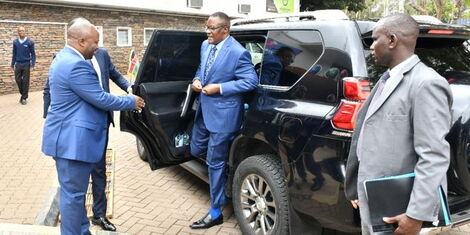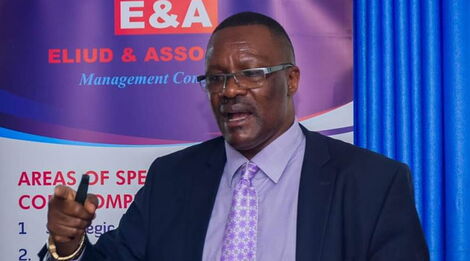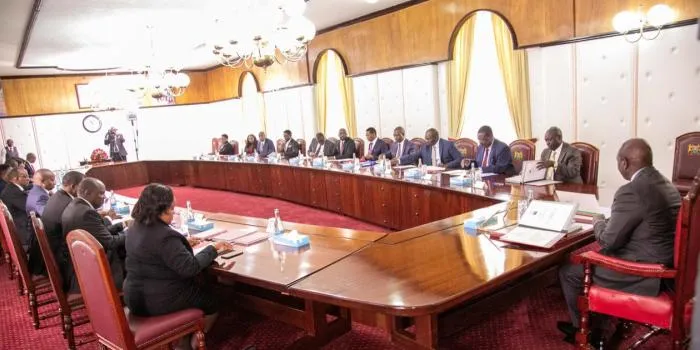- Details
- East Africa
- 1149
-
President Ruto chairs Cabinet meeting at State House on Thursday, November 10, 2022 FACEBOOK STATE HOUSE KENYA
-
Detectives drawn from the Directorate of Criminal Investigations (DCI) based in Rongo, Migori County, are holding a man accused of impersonating ICT Cabinet Secretary Eliud Owalo and swindling job seekers as well as businessmen in the country.
In a statement dated Thursday, January 5, DCI explained that the suspect tricked unsuspecting Kenyans by creating fake social media accounts with the identity of the CS.
To swindle his victims, the suspect used Owalo's official photos and even posted statements purporting to emanate from ICT Ministry.
The suspect further gained his suspects' trust by promising them employment opportunities, business favours, connections in government and even empowerment opportunities.
 Information, Communication Technology, and Digital Economy Cabinet Secretary Eliud Owalo arriving at KBC on Tuesday, November 1, 2022.KBC
Information, Communication Technology, and Digital Economy Cabinet Secretary Eliud Owalo arriving at KBC on Tuesday, November 1, 2022.KBC"Hi friends, we can discuss employment, business, development opportunities, women and men empowerment in this podium to help each other in building a better society," one of the statements posted on the fake Facebook page read in part.
Hundreds of hapless Kenyans lost thousands to the online scheme orchestrated by the suspect apprehended by DCI.
"The suspect, who has been promising business opportunities, employment and empowerment programs to hapless Kenyans, was arrested in Rongo by detectives and five mobile phones believed to be used in the scheme were recovered.
"Detectives are pursuing other suspects who have opened accounts in the names of prominent Kenyans and senior government officials, and are using the accounts to obtain money from unsuspecting members of the public. Kenyans are advised to be wary of such social media accounts and are cautioned not to send money to anyone in order to influence favours," DCI's statement read in part.
The arrest came just days after a Sugoi-based musician pleaded guilty to impersonating Deputy President Rigathi Gachagua to swindle Kenyans.
The sugoi-based musician explained that financial distress pushed him to create the account to gain followers and market his music.
He went ahead to request Gachagua to help him secure a job. Defending his sentiments before Milimani Law Courts Senior Principal Magistrate Esther Kimilu, he argued that employment opportunities would help him build his career in information technology.
"Your honour, I created the fake Facebook book account in the name of His Excellency Hon Rigathi Gachagua to look for views and likes for my songs whose links are available for viewing," he pleaded.
 Information, Communications and Digital Economy Cabinet Secretary (CS) Eliud Owalo addressing a sitting in Nairobi CAPITAL GROUP, By Geoffrey Luta, Kenyans.co.ke
Information, Communications and Digital Economy Cabinet Secretary (CS) Eliud Owalo addressing a sitting in Nairobi CAPITAL GROUP, By Geoffrey Luta, Kenyans.co.ke






